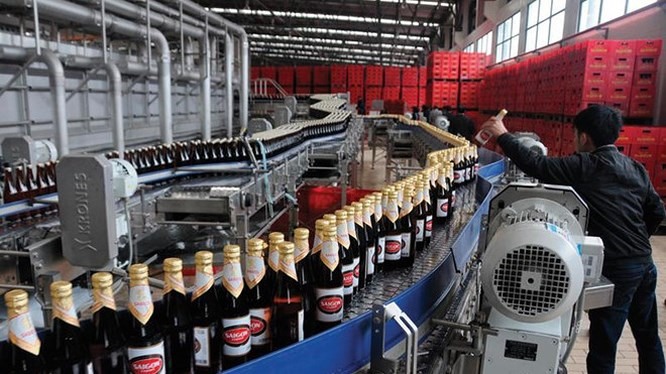 Economy
Economy

The Government Inspectorate will carry out an inspection targeting State-owned enterprises (SOEs) in which the Ministry of Industry and Trade controls State capital.
 |
| The Government Inspectorate will carry out an inspection targeting State-owned enterprises (SOEs) in which the Ministry of Industry and Trade controls State capital.— Photo viettimes.vn |
HÀ NỘI — The Government Inspectorate will carry out an inspection targeting State-owned enterprises (SOEs) in which the Ministry of Industry and Trade controls State capital.
The inspection will be conducted within 70 working days on SOEs which the ministry (MoIT) restructured during 2011-17, via re-arrangement, equitisation and divestment, the Inspectorate said in a decision on Thursday.
The inspection team contains 11 members, led by Nguyễn Duy Bính, senior inspector of the Government Inspectorate.
Bùi Ngọc Lam, Deputy General Inspector of the Government Inspectorate, has asked the ministry to provide records and related documents required by the inspection team.
MoIT also has to request its agencies to work with the inspection team and assist the team to fulfill and perform its work well, Lam said.
Lam has asked the inspection team to co-operate with MoIT and the SOEs under the management of the ministry to carry out the work efficiently, avoiding costing those firms time and money.
According to the former director of the Viet Nam Institute of Economics, Trần Đình Thiên, 508 SOEs were equitised in the 2011-15 period, fulfilling 96.5 per cent of the plan, and it was considered a good result.
However, only 8 per cent of the State shares were sold to private investors, thus the SOE equitisation in the last five-year period could be considered inefficient as those firms had failed to re-allocate their resources to improve performance, he said.
“Equitised SOEs are still owned by the State with problems relating to business transparency, losses and inefficient use of State assets, while private companies have stood outside the management board of those SOEs,” Thiên said.
He acknowledged the fact that equitisation of Vietnamese SOEs did not mean privatisation when the State not only wanted to offload its ownership at high prices and use the resources efficiently but also expected the private sector to remain outsiders and transfer the State capital to units that have poorly performed in using the resources.
Therefore, it was necessary to change the mindset of those SOE leaders towards market-based principles so that the restructuring of SOEs can be improved, he added.
According to the Ministry of Finance, 570 SOEs were equitised in 2011-16. The total value of those companies was VNĐ797 trillion (US$35.4 billion) with the Government holding nearly 27 per cent of the figure.
In 2017-20, the Prime Minister approved a plan that targets 127 SOEs to be equitised, including 44 for 2017, 64 for 2018, 18 for 2019 and one for 2020. The MoIT since 2016 has sold stakes in 17 SOEs, including six corporations and groups.
On January 1, MoIT offloaded shares in Bình Sơn Refinery and Petrochemicals Corporation, PetroVietnam Power Corporation and PetroVietnam Oil Corporation.
The ministry plans to sell its stakes in some large-cap firms such as the Vietnam National Petroleum Group (Petrolimex), Ha Noi Beer-Alcohol-Beverage Corporation (Habeco) and Vietnam Engine and Agricultural Machinery Corporation (VEAM). — VNS




